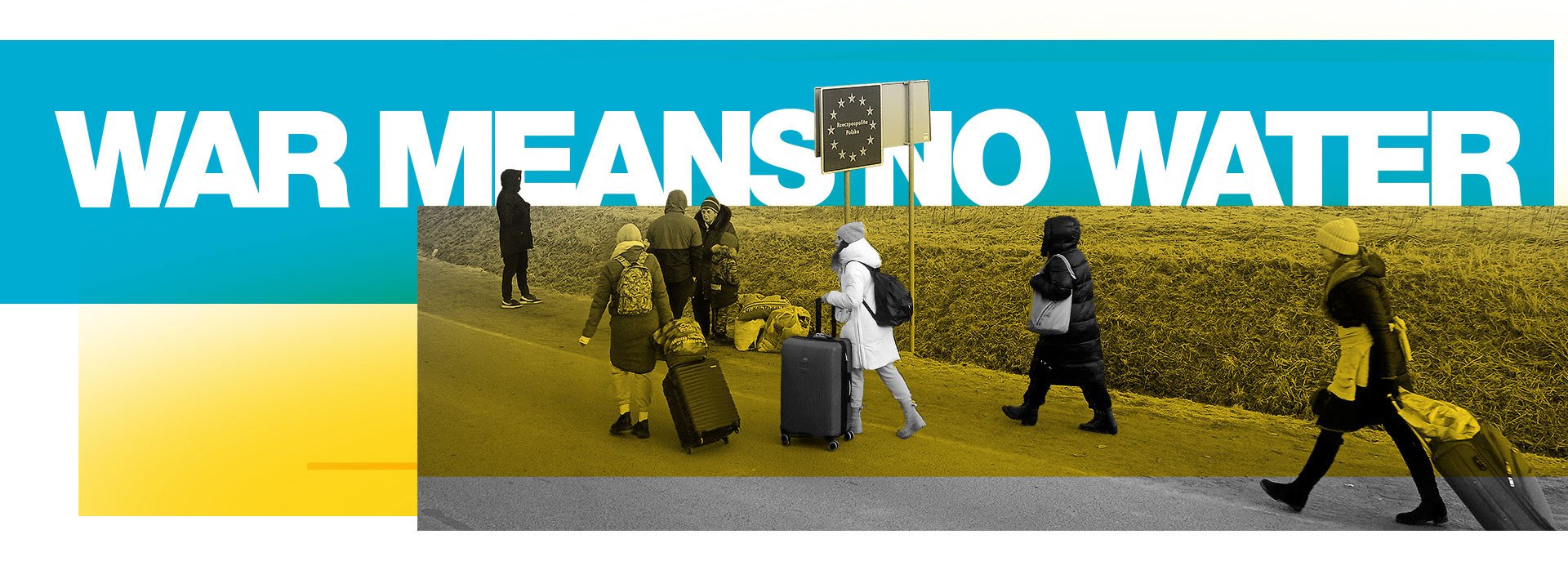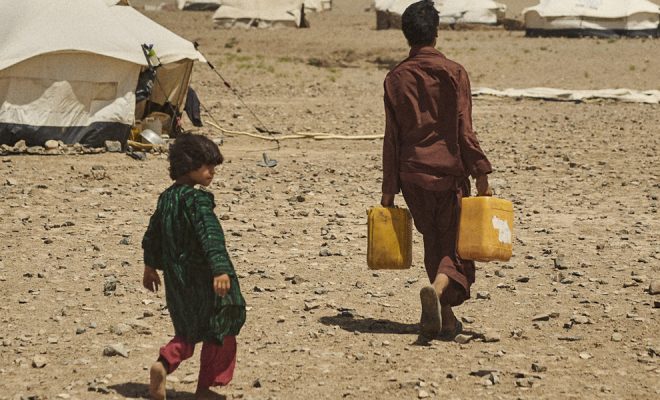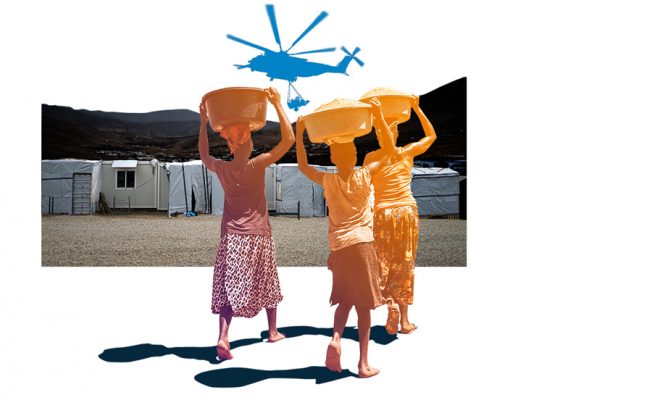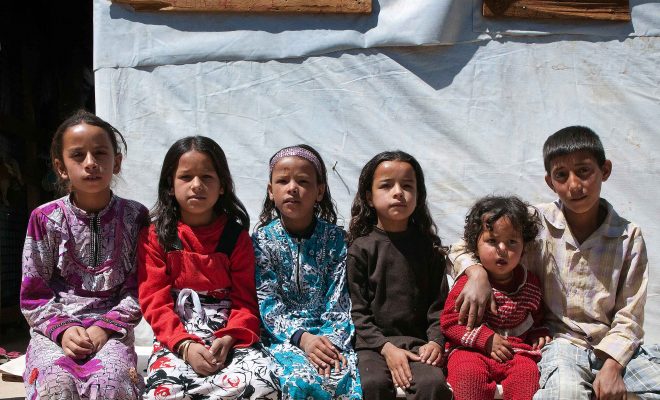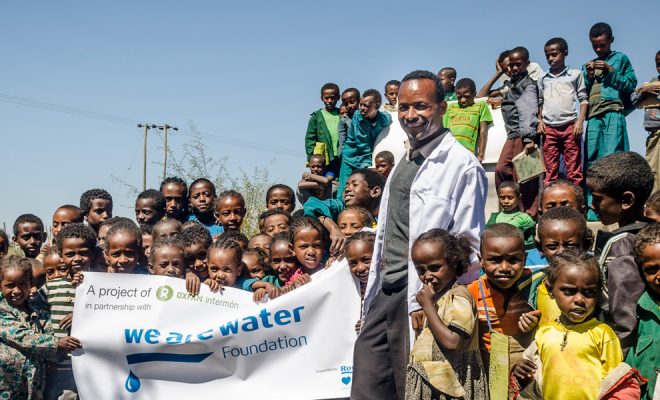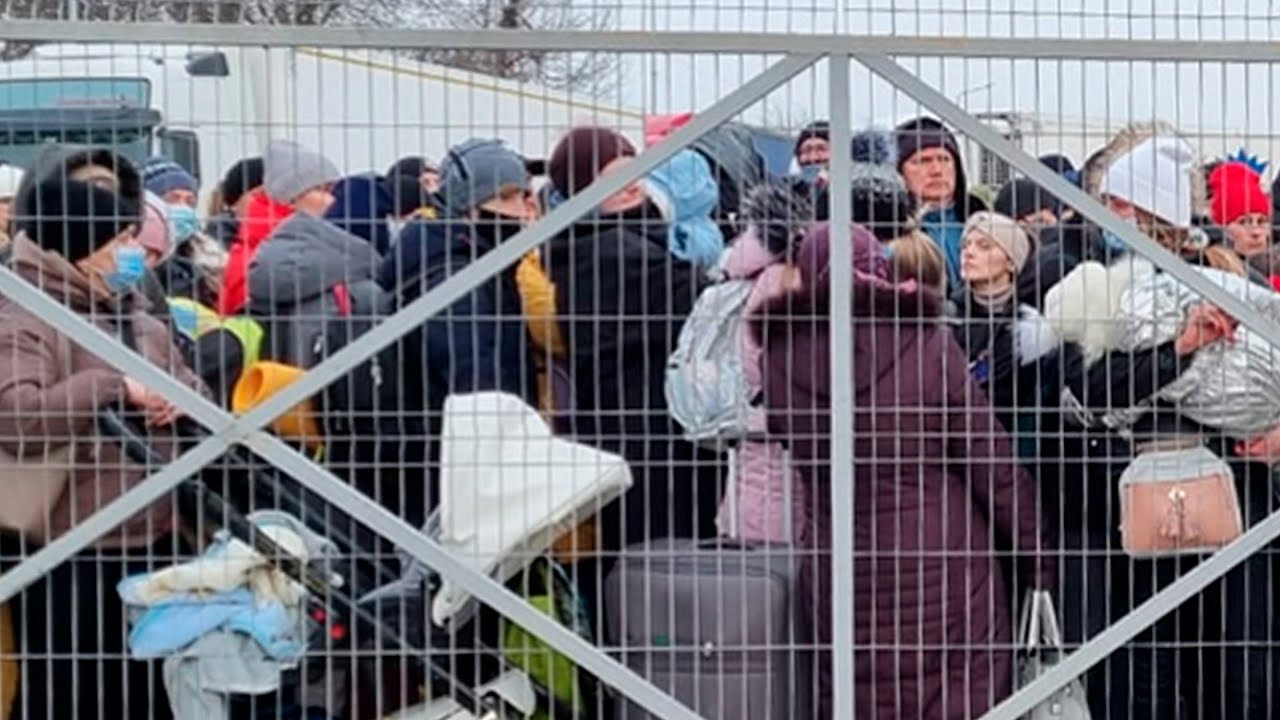
At the time of writing this article, the UN estimates that more than two million people have fled Ukraine. Meanwhile, the number of besieged towns and villages is increasing, and civilians suffer from indiscriminate shelling that destroys essential services, including hospitals and electricity and water supply facilities.
If the conflict continues, it is estimated that the number of refugees could reach five million. According to UNICEF, 12 million people are without access to water, and 2.9 million children need immediate protection services. Centralized and decentralized water, sanitation and hygiene services and infrastructures, especially in eastern Ukraine, have been damaged, leaving more than one million households without water.
The horror of war deconstructs our idea of vulnerability. It happens in all conflicts, especially modern ones. We have seen it recently in Syria, in Afghanistan, in Sudan, in Congo… and now in Ukraine. Military aggression is selective, but it makes no distinction between things and people. In modern warfare, the “front,” understood as a combat zone, is often diluted between population centers, always reaching the civilian population. Death is imposed by making vulnerability widespread, a risk factor that becomes dependent on the aggressor’s objectives and is therefore uncontrollable.
This is the ultimate injustice the civilian population can experience, with women, children, and the elderly suffering the worst choices. If they remain in their homes, they expose their lives and survive as best they can in a destroyed environment that leaves them without food, electricity, or water; if they go, uprooting is coupled with family breakdown, and the success of the grueling flight to uncertain survival depends on what help they can find along the way.
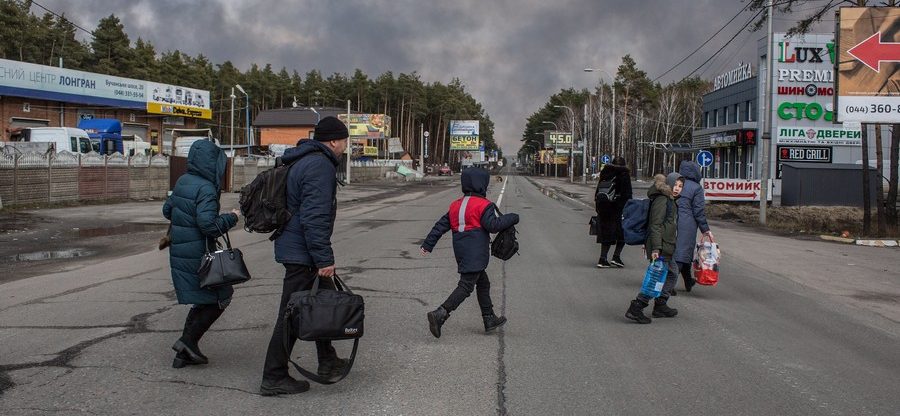
In Ukraine, war once again shows the worst side of the human condition. © During the attacks, the population are feeling violence, Bucha, Kyiv Oblas / Photo/ Oleksandr Ratushnyak / UNDP Ukraine
The horror of those who remain
Wars almost always violate the Geneva Conventions’ protocols, the Rome Statute (revoked by Russia in 2016), and UN Assembly resolutions, which were agreed to protect civilians. Specifically, Article 52 of the Additional Protocol to the Geneva Conventions of 1949 reads: “It is prohibited to attack, destroy, remove or render useless objects indispensable to the survival of the civilian population, such as foodstuffs and agricultural areas producing them, crops, livestock, drinking water facilities and supplies and irrigation works, with the deliberate intent to deprive the civilian population or the adverse party, for whatever reason, of such objects, because of their value as means of subsistence, whether to starve civilians, to provoke their displacement, or for any other purpose.”
In Ukraine, humanity is experiencing the horror of attacks on defenseless civilians and the deliberate destruction of basic infrastructures to pressure the population. This nightmare began years ago in the ongoing armed conflicts with pro-Russian guerrillas in the eastern regions (Donetsk and Luhansk). We have seen this suffering recently in the Syrian war, where large pockets of the population are trapped helpless and cut off from international aid organizations; just as we saw it in Darfur, in Yemen and South Sudan, and the African world war, also known as the coltan war, which caused the deaths of some 5.4 million people, most of them from starvation and infectious diseases caused mainly by consuming contaminated surface water.
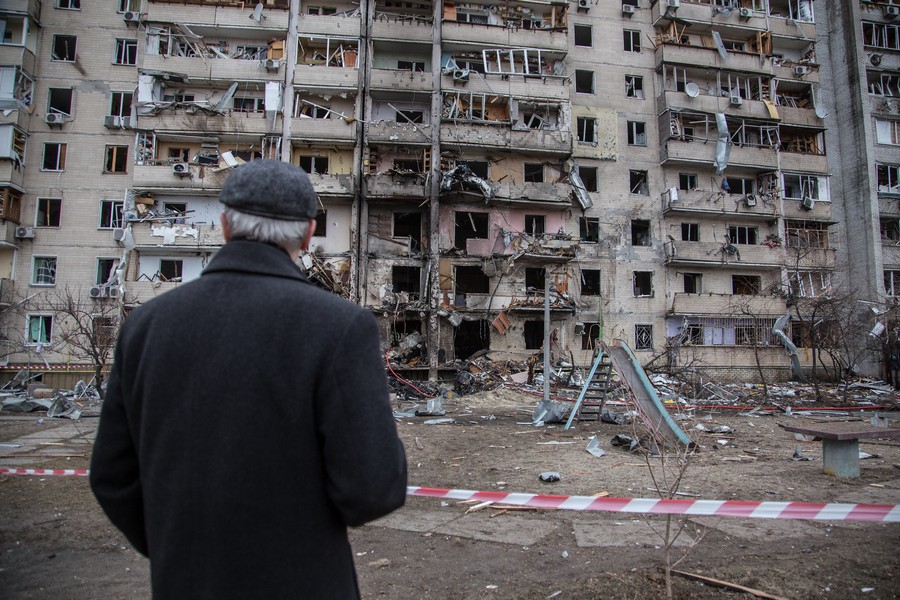
In Ukraine, humanity is experiencing the horror of attacks on defenseless civilians and the deliberate destruction of basic infrastructures to pressure the population. © Photo/ Oleksandr Ratushnyak / UNDP Ukraine
The pain of the displaced
Water is always the first thing the victims of war’s perversity need. Water is lacking for those who stay, and water is needed for those who flee. The drama of forced migration is also accompanied by the urgent need for sanitation and hygiene in reception centers and camps. Our experience corroborates this. One of our first projects, 11 years ago, was the supply of water and the creation of sanitation and hygiene training infrastructures in the refugee camps in eastern Chad. We are currently applying this experience in the Nyabiheke refugee camp in Rwanda, where we are developing an aid project with World Vision. There, again, the most urgent issue is to improve access to adequate sanitation and hygiene facilities so that the inhabitants can have access to health and dignity.
Displaced people are fleeing declared wars and violence, corruption, and poverty. Their needs, however, are the same: water, sanitation and hygiene, and food. We have seen this in the migration drama, exacerbated during the first phase of the coronavirus pandemic, in our projects on the Tijuana border in Mexico, on Brazil’s border with Venezuela, and in Mali.
Host communities are under pressure from migration flows and also need help. The war in Syria caused a flood of displaced people in Lebanon. Our project in the Bekaa valley highlighted the importance of planning for refugees – Syrian children in that case – in an area where water stress is endemic.
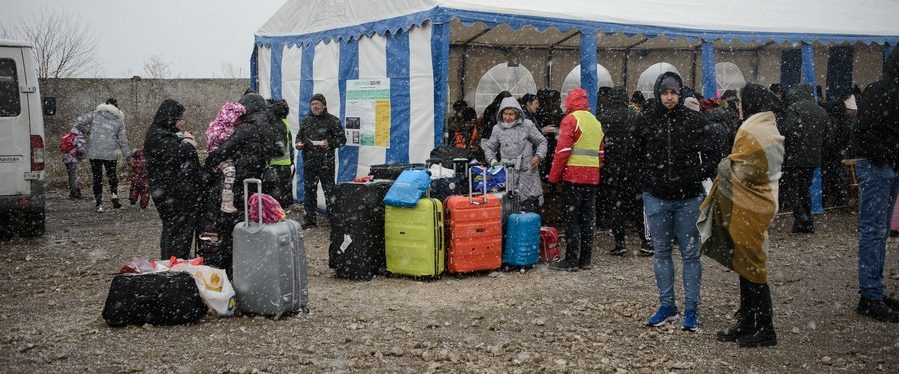
Solidarity is the most powerful resource for peace. © EU Civil Protection and Humanitarian Aid
New projects in Ukraine
In the case of Ukraine, the international reaction has been unanimous, and aid has been mobilized. Still, it is never enough, as the vital needs of the refugees increase as they accumulate in the camps. We have started two new projects there with UNICEF to help the victims who remain in the country and with World Vision to help those fleeing to Romania and Moldavia, where more than 57,000 and 103,000 people seeking refuge have arrived. They urgently need access to sanitation and hygiene through safe latrines and washbasins, hygiene kits, soap, detergent, tissues, nappies, sanitary towels, small first aid kits, and toothpaste and toothbrushes, as well as pre-paid SIM cards so they can contact their families.
In addition to death and suffering, every war brings poverty, hunger, disease, gender injustice, lack of water and sanitation, and environmental destruction. Wars are the worst thing in our history, the dismal failure of a civilization that claims to achieve “sustainable development goals.” But in every war, we have seen that solidarity is the most powerful resource for peace and the basis of our hope for an ethical future. We need everyone’s collaboration to help those who suffer and show that there is something that weapons cannot defeat.
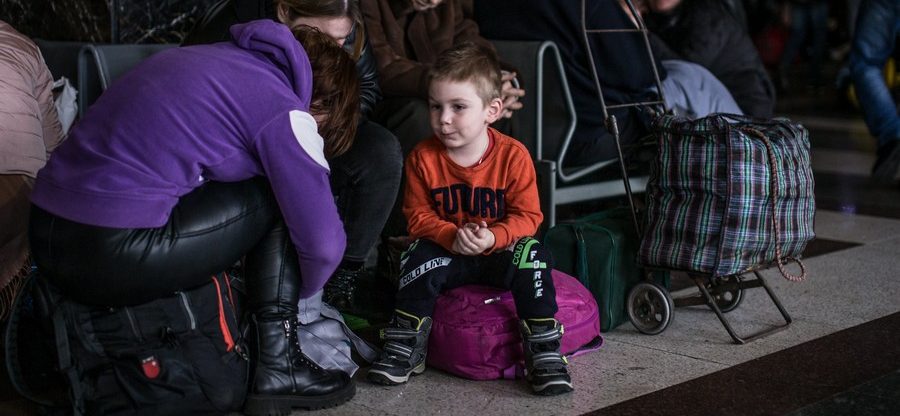
Millions have already fled their homes and 7.5 million children are at risk. © Kyiv railway station. Photo/ Oleksandr Ratushnyak, UNDP Ukraine


